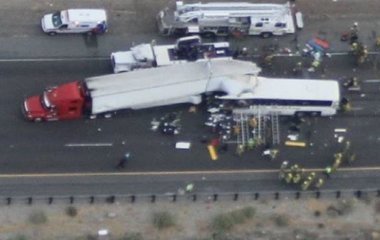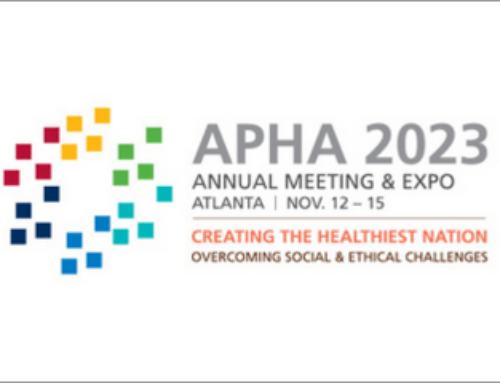One year after a commercial vehicle crash claimed 13 lives in southern California, the National Transportation Safety Board (NTSB) announced in a press release that both vehicles involved in the crash were likely operated by severely fatigued drivers.
According to a synopsis from the NTSB’s report, a motorcoach collided with a stopped tractor trailer on Oct. 23, 2016, on Interstate 10 near Palm Springs, California, killing the motorcoach driver and 12 passengers. The truck driver and 30 other passengers on the motorcoach were injured.
The NTSB investigation found that the truck driver likely fell asleep when traffic was stopped due to utility work. Given his extremely high level of obesity, the truck driver probably had undiagnosed and untreated moderate-to-severe obstructive sleep apnea. The truck driver did not resume driving as traffic began to move, and the motorcoach stuck the truck from the rear, resulting in 13 casualties. The motorcoach driver slept 4 hours or less in the day and a half before the crash, indicating that fatigue played a role in the collision.
Responding to the recent findings, NTSB Chairman Robert Sumwalt stated, “In this crash, not one but two commercial vehicle drivers – people who drive for a living – were unable to respond appropriately to cues that other motorists acted on. Federal and state regulators, commercial motor carriers and professional drivers can do better. Given the stakes, they must do better.’’
The need to reduce fatigue-related accidents is one of the safety priorities highlighted by the NTSB 2017-2018 Most Wanted List. The NTSB noted that the Federal Motor Carrier Safety Administration (FMCSA) Medical Review Board has developed guidance for screening for obstructive sleep apnea. However, the FMCSA has not disseminated this guidance to the medical examiners it certifies to perform commercial driver’s license medical examinations.
Each year in the U.S., drowsy driving causes an estimated 6 percent of all crashes and 21 percent of fatal crashes. View a list of the AASM transportation safety initiatives and contact your lawmakers to Take Action to help put a stop to America’s drowsy driving epidemic.
For further discussion concerning the AASM’s drowsy driving policy initiatives, please contact AASM advocacy staff at (630) 737-9700.









